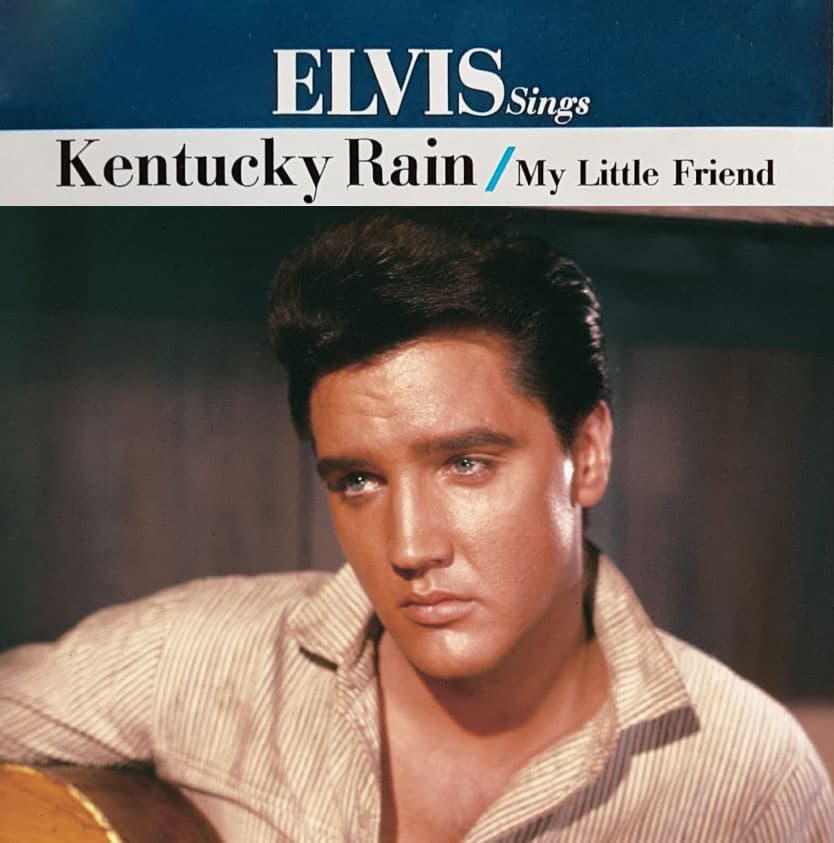
An Ode to Unrequited Love and the Haunting Pitter-Patter of Hope
In the late 1960s, a decade synonymous with seismic cultural shifts and the twilight of a certain kind of innocence, even the King of Rock and Roll, Elvis Presley, felt the pull of the past. It was a time when the world was changing at a dizzying pace, but some emotions remained timeless and universal. In 1970, with the release of the single “Kentucky Rain,” Presley offered a poignant and deeply evocative ballad that resonated with audiences far and wide. The song, a masterful blend of country, gospel, and pop sensibilities, served as a stark reminder of his unparalleled vocal prowess and his ability to inhabit a song’s narrative with every fiber of his being.
“Kentucky Rain,” released as the B-side to the more upbeat and celebratory “My Little Friend,” quietly began its journey up the charts. It found its way to No. 16 on the Billboard Hot 100, a respectable showing for a B-side, and a testament to its undeniable quality. For those who were there, watching the charts with eager anticipation, it was a familiar sight to see Elvis’s name among the top contenders, a constant presence in an ever-shifting musical landscape. But this song, in particular, felt different. It wasn’t the swaggering rock and roll of his early days; it was something more mature, more reflective, and perhaps, more heartbreaking.
The story behind “Kentucky Rain” is as captivating as the song itself. Penned by the legendary duo of Eddie Rabbitt and Dick Heard, the song’s origins lie in a moment of pure, unadulterated creativity. Rabbitt, a prolific songwriter, was driving through a downpour in Kentucky when the phrase “Kentucky Rain” popped into his head. The imagery of the relentless rain mirroring the relentless search for a lost love was a powerful one, and he immediately knew he had to write about it. The lyrics, with their vivid details of “walking up and down the streets” and the “lonely sound of the rain,” paint a picture of a man consumed by his quest. He’s a ghost in his own life, a wanderer chasing a phantom.
And that’s the core meaning of the song: a desperate, fruitless search for a love that has vanished, leaving only a void. The “Kentucky rain” isn’t just a weather phenomenon; it’s a metaphor for the tears, the sadness, and the persistent, nagging hope that refuses to be extinguished. It’s the sound of a heart breaking slowly, a quiet ache that permeates every corner of the soul. For anyone who has ever felt the sting of unrequited love or the desolation of a relationship’s end, the song is a mirror, reflecting their own pain back at them. The genius of Presley’s performance lies in his ability to convey this raw emotion without a hint of melodrama. His voice is a vessel for the protagonist’s sorrow, a powerful instrument that manages to sound both fragile and immensely strong at the same time. He doesn’t just sing the words; he lives them, taking the listener on a journey through the rain-soaked streets of a heart in turmoil.
“Kentucky Rain” is more than just a song; it’s a moment frozen in time. It’s the sound of a late-night drive, the headlights cutting through the darkness, the radio playing a tune that perfectly captures the mood. It’s a memory of a lost love, a longing glance, a tear that’s quickly wiped away. It’s a reminder that even the King, with all his fame and fortune, could sing a song that spoke to the most universal of human experiences: the search for love, and the enduring pain of its absence. And as the final notes fade, the listener is left with the echo of the rain, a melody of nostalgia and quiet contemplation that lingers long after the music has stopped.